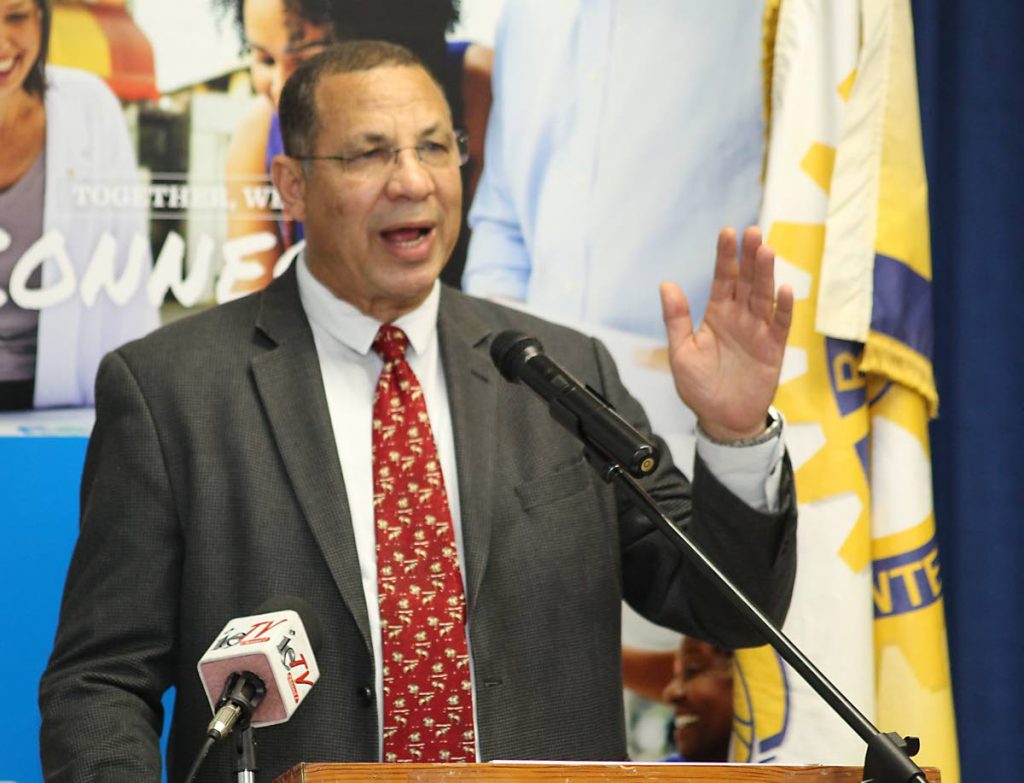V'zuelans can help TT

THE current influx of Venezuelan migrants to TT can and should be used to assist the local economy, according to panellists at TT Economics Association’s seminar on Saturday. Speaking on the issue at the Learning Resource Centre at the University of the West Indies, St Augustine, former minister in the Ministry of Finance Mariano Browne said with the right policies in place, TT can gain from the crisis.
The title of the seminar was the Venezuelan arrival-From crisis to opportunity, moderated by Kiran Mathur Mohammed. In his opening address, Browne said TT had enough money to go around even with between 40,000 to 70,000 Venezuelans in the country.
That figure has been refuted by Government who are sticking with the 16,523 registered Venezuelans during the two-week period in June.
Browne, who said his mother is Venezuelan, said that not all the migrants are here to stay. He added that while migration creates competition here, the same problem is being transposed outside the region with some 65-85 per cent of graduates leaving for jobs rather than staying to create jobs.
Dr Vaalmikki Arjoon said there should be a skills bank where those with necessary qualifications are given work permits for at least two years. Arjoon said the current exodus from the oil rich South American country, with 4.5 million Venezuelans already leaving, is set to surpass the Syrian migration. He said there was a financial deficit waiting to happen when the working Venezuelans leave, taking with them high productivity and other sources of income. His solution is to regulate the work permits focusing on specific sectors namely manufacturing and agriculture. He also said Venezuelan labour can be used in diversifying the economy. Arjoon said TT should not be averse to foreign aid pointing to countries such as Turkey, Finland and Sweden which had external assistance and tax exemptions to help them with Syrian migration.
He, like Browne, said the country lacks serious policies to adequately address the crisis. Browne said the Government took too long to address the concern and was now taking longer to put policies to satisfactorily meet the growing needs of the migrants, such as schooling for children.
“We never anticipated this was going to happen and let me tell you this is just the first wave. Government has responded belatedly and has postponed the problem,” Browne said.
While the concerns about sexual exploitation was raised by a member of the audience, as Venezuelan women work in bars, head of the San Fernando Business Association, Daphne Bartlett said the women choose that line of work.
“Venezuelans are not here to help TT, let’s get that straight. They are here to send stuff back home. The females love to work in bars, and we know why. They get the tips and an opportunity for them to get more money with whatever else they do in the bar. The ladies that gravitate to the bars they want that job,” she said, adding that she has offered some work in retail and they refused for bar work. The lone Venezuelan on the panel was Ruben Smith who said half of his country’s working force have left, adding that they were forced out and will return the minute things get better back home.
Giving credence to the 40,000-figure mentioned, Smith said there are between 10-12,000 Venezuelans in TT who have dual citizenship and, from his records, from 2010 there were at least 8,000 who lived and worked in TT and Venezuela.
He called on Government to institute policies as soon as possible since faster they can get Venezuelans working and paying taxes, the better it is for TT.

Comments
"V’zuelans can help TT"